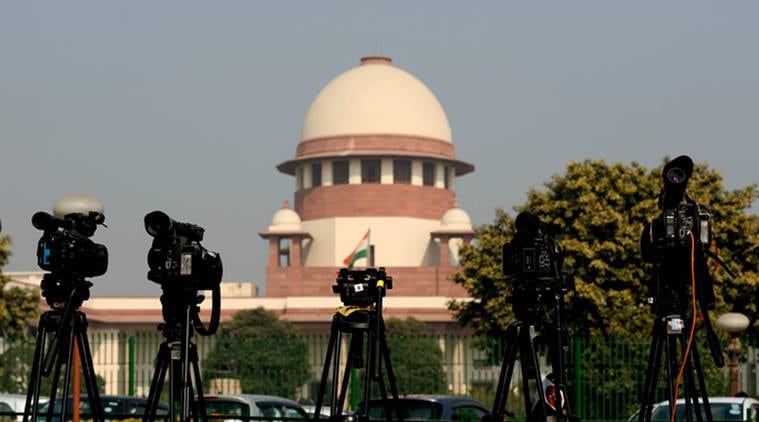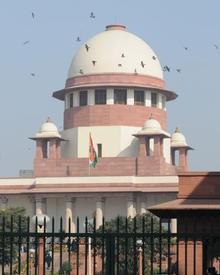
(Represntational Image)The Supreme Court on Wednesday said even Parliament cannot deny a person the fundamental rights under Article 21 (right to life and personal liberty) and the Constitution does not allow arrest “without a fair and just procedure”. (Represntational Image) The ruling had triggered protests from various Dalit outfits following which the Centre approached the apex court seeking a review. The ruling had triggered protests from various Dalit outfits following which the Centre approached the apex court seeking a review. In response, Attorney General K K Venugopal, appearing for the Centre, said the court through interpretations had created 30 different rights which were not in the Constitution. Justice A K Goel is set to retire on July 6.
The ruling had triggered protests from various Dalit outfits following which the Centre approached the apex court seeking a review.(Represntational Image) The ruling had triggered protests from various Dalit outfits following which the Centre approached the apex court seeking a review.(Represntational Image) The Supreme Court on Wednesday said even Parliament cannot deny a person the fundamental rights under Article 21 (right to life and personal liberty) and the Constitution does not allow arrest “without a fair and just procedure”.
The remarks came from a two-judge bench while hearing the Centre’s review petition against the top court’s March 20 verdict on the Scheduled Castes and the Scheduled Tribes (Prevention of Atrocities) Act, 1989. The bench of Justices A K Goel and U U Lalit said after the Supreme Court’s verdict in the Maneka Gandhi vs Union of India (1978), Article 21 of the Constitution “has to be read into every provision, including section 18 (of the 1989 Act)”. Section 18 of the Act says that an accused will not be entitled to the benefit of anticipatory bail.
This is in contrast to the top court’s March 20 judgment, which ruled that anticipatory bail could be granted to a person if no prima facie case was made out.
The Centre had sought a review saying the top court’s verdict countermanded the law enacted by the legislature. Noting instances of abuse of the 1989 Act by “vested interests” for political and personal reasons, the top court in its March 20 judgment had laid down stringent safeguards, including provision for anticipatory bail and vetting of complaint to determine if a case was made out before registration of FIR under it.
It said that if the accused person is a public servant, arrest can be made only with the permission of the appointing authority and where the accused is not a public servant, prior permission of the Senior Superintendent of Police of the District was necessary for arrest. The ruling had triggered protests from various Dalit outfits following which the Centre approached the apex court seeking a review.
“If a person can be arrested without following a fair, just and reasonable procedure, then we are not living in a civilised society,” Justice Goel said, while adding that one of the mandates of the Supreme Court was to ensure that the fundamental rights under Article 21 were enforced. In response, Attorney General K K Venugopal, appearing for the Centre, said the court through interpretations had created 30 different rights which were not in the Constitution.
Source- Indian Express

Leave a Reply